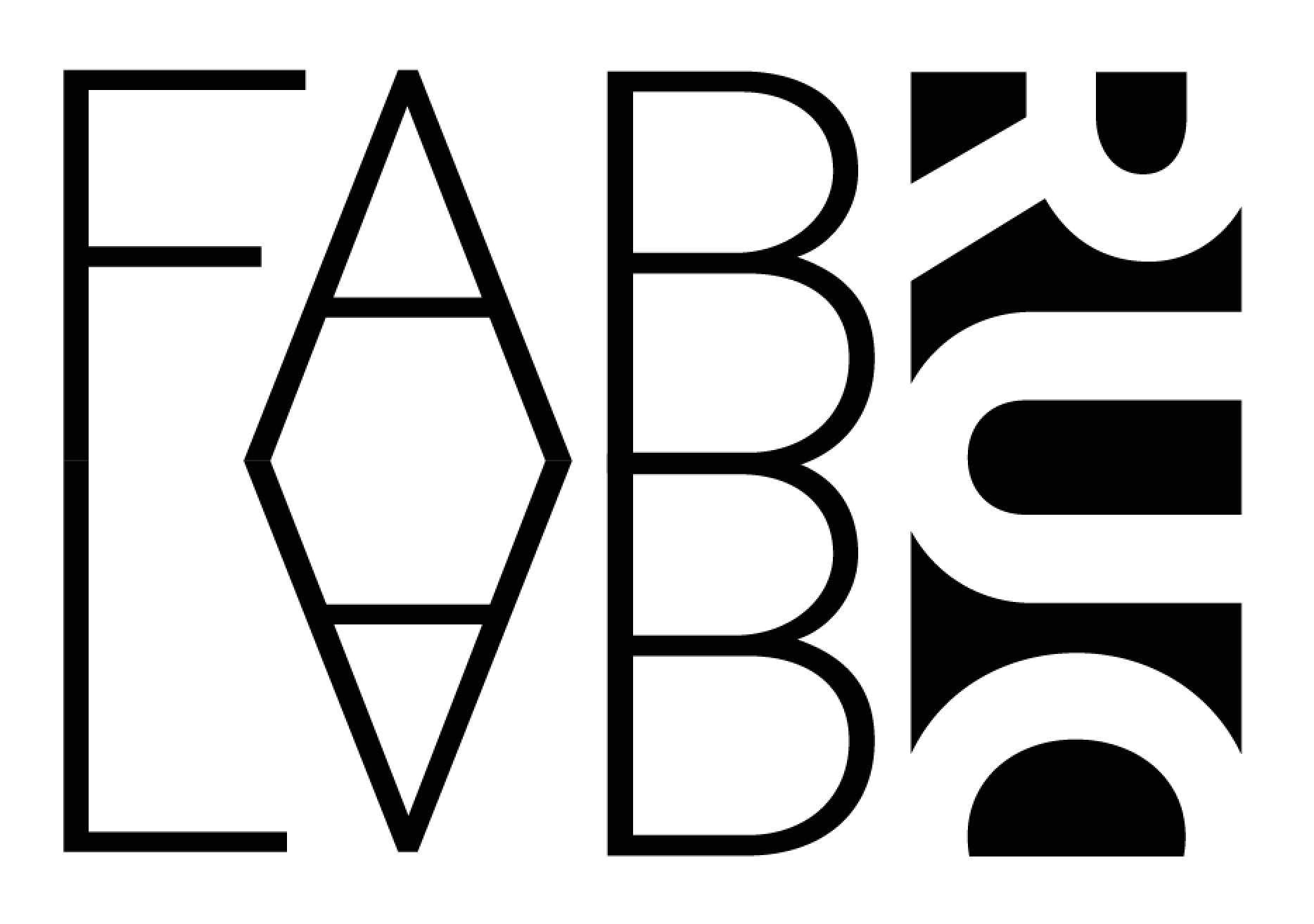Making things - Scandinavian Summer Creations
Summer 2018
@FabLab RUC, Copenhagen
June 18 to July 7, 2018
(moved, was previously June 25 to July 13, 2018)
Roskilde Festival June 30 to July 7
Max 18 participants
Requirements: Interest in learning to actually build things that work, an open mind, a good sense of humour, and a dash of creativity. No previous coding or technical experience is required.
The course
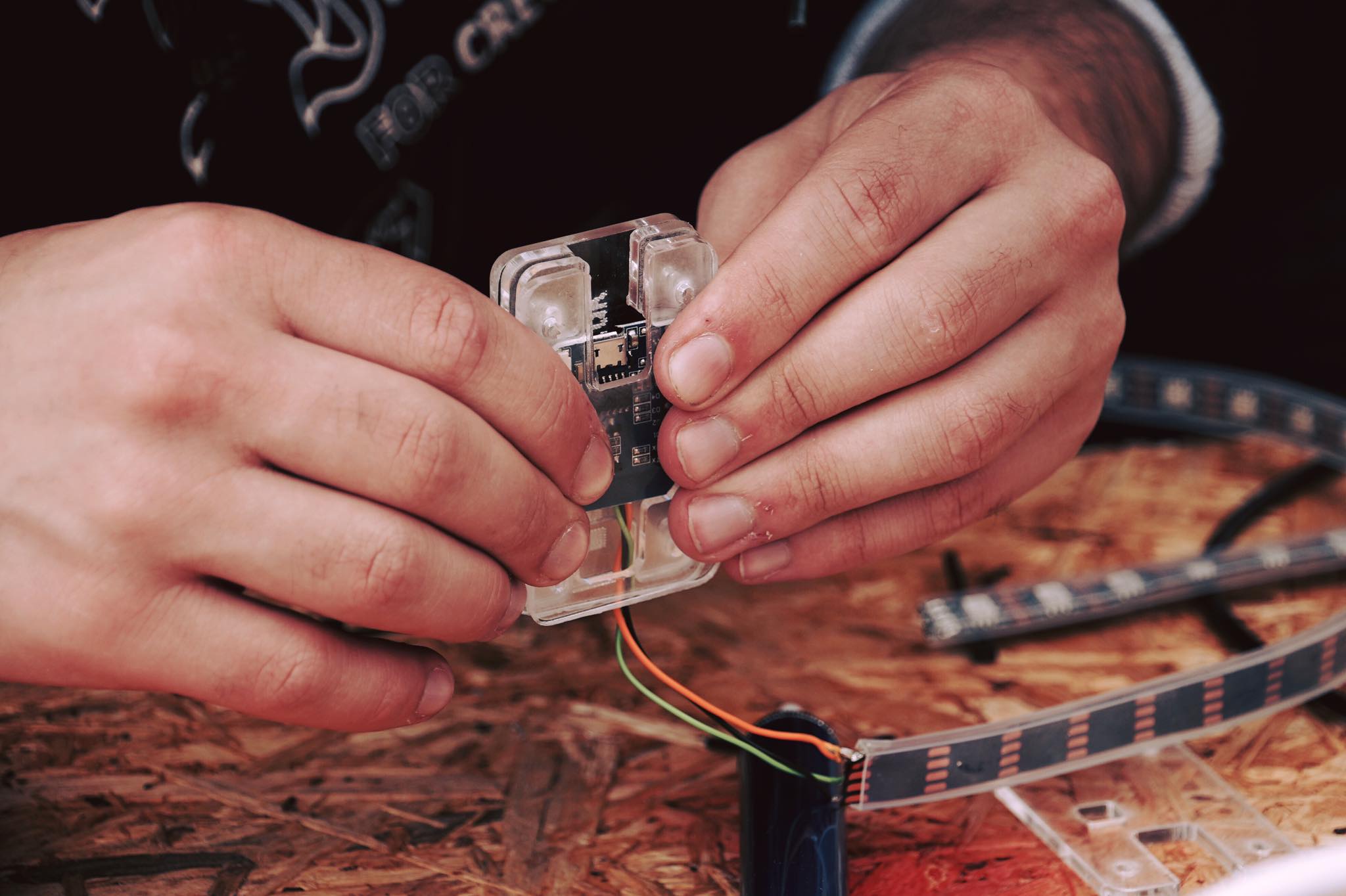 You will learn rapid prototyping, how to program an Arduino microcontroller, sensors, actuators, laser cutting and CNC machining. The digital is key to most new products and product categories, and we will teach you to program. Programming is no longer an optional skill, it is a basic skill for the 21st century, and is becoming standard curriculum in primary schools. Don’t worry, we regularly teach humanities students programming in two weeks - the only prerequisite is desire to learn. We will cover programming, sensors, timing, measuring the real world, user input, user interface design, output, testing and user testing.
You will learn rapid prototyping, how to program an Arduino microcontroller, sensors, actuators, laser cutting and CNC machining. The digital is key to most new products and product categories, and we will teach you to program. Programming is no longer an optional skill, it is a basic skill for the 21st century, and is becoming standard curriculum in primary schools. Don’t worry, we regularly teach humanities students programming in two weeks - the only prerequisite is desire to learn. We will cover programming, sensors, timing, measuring the real world, user input, user interface design, output, testing and user testing.
Whatever degree you’re studying, employers are hunting for graduates with a level of technical know–how. Understanding how things work outside the classroom–getting your hands dirty! - and working collaboratively with a team of people from various backgrounds can benefit your degree, your employability and your capacity to develop an exciting career.
There will always be a use for graduates who can both analyse and use their hands. Even if you do not end up being a programmer, being knowledgeable enough to talk to programmers is an invaluable project leadership skill.
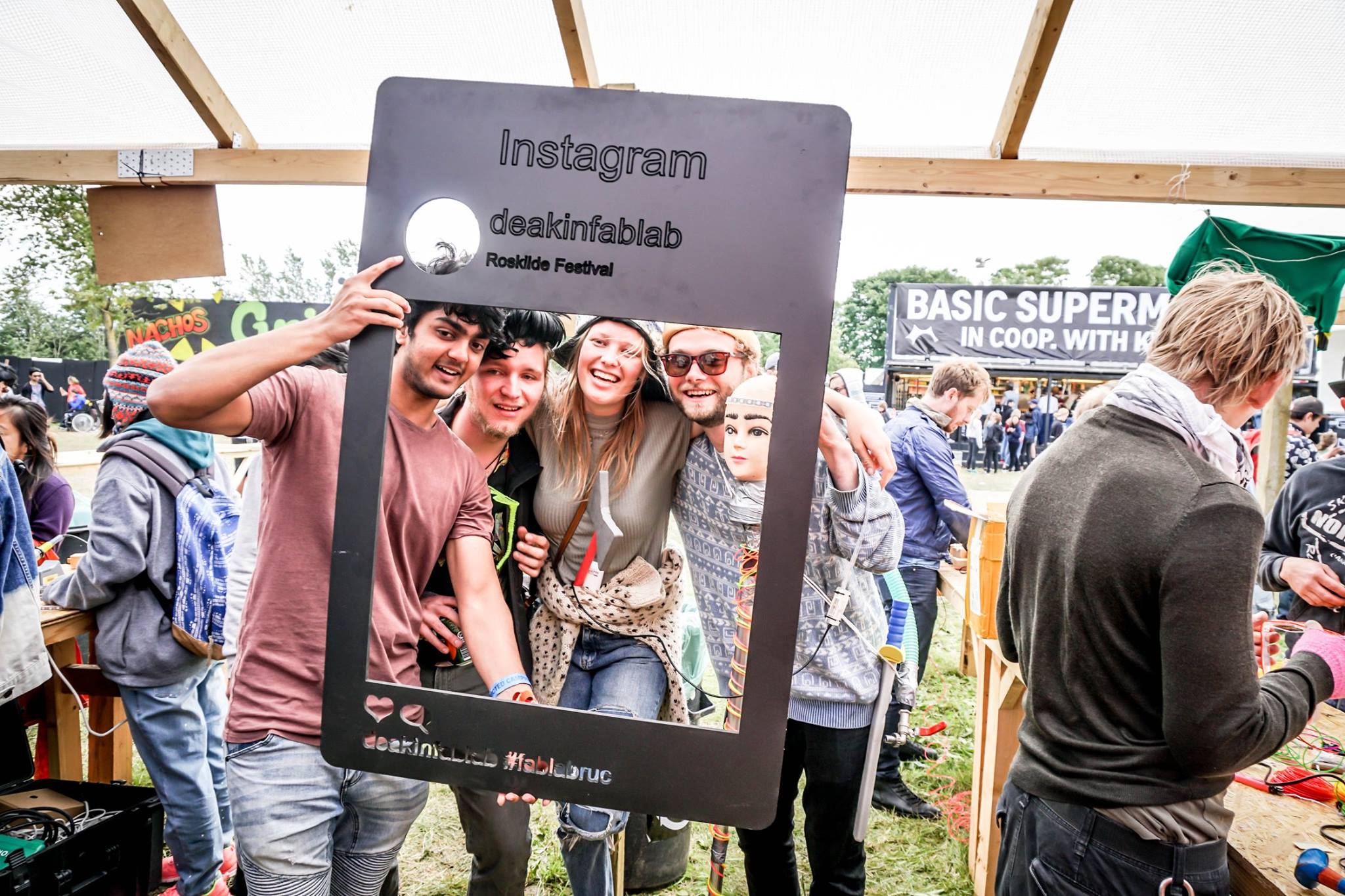
The future
 Rapid prototyping, 3D printing, robotics, computer-controlled machines - the future of manufacturing is more local and flexible. Kickstarter is now a huge but imagine a future where ideas are also crowdsourced: Where production facilities are democratised; where many 15 year-olds have a 3D printer at home and it only takes 3 hours from idea to working prototype. Imagine a world where you download an open source spare part for your car and print it at the local print shop; or retooling a factory takes hours not weeks, and small production runs, customised and individualised products become the norm.
Rapid prototyping, 3D printing, robotics, computer-controlled machines - the future of manufacturing is more local and flexible. Kickstarter is now a huge but imagine a future where ideas are also crowdsourced: Where production facilities are democratised; where many 15 year-olds have a 3D printer at home and it only takes 3 hours from idea to working prototype. Imagine a world where you download an open source spare part for your car and print it at the local print shop; or retooling a factory takes hours not weeks, and small production runs, customised and individualised products become the norm.
The Maker movement is spreading rapidly worldwide with over 1000 Fablabs already, and is doing for physical objects what the open source software movement has done for computer programs.
Project assignment
 You will base your project on the a toolkit of a one meter neopixel strip (each pixel is individually controllable) attached to a Wemos microcontroller board (the Wemos is a small programmable computer the size of a postage stamp, like an Arduino and Arduino compatible, but with the added benefits of 1) being really small and 2) having WiFi).
You will base your project on the a toolkit of a one meter neopixel strip (each pixel is individually controllable) attached to a Wemos microcontroller board (the Wemos is a small programmable computer the size of a postage stamp, like an Arduino and Arduino compatible, but with the added benefits of 1) being really small and 2) having WiFi).
You will start learning programming, and later work in groups on a self-selected real world problem within a framing and with a toolkit provided by us. An example could be reducing litter. You will have an idea generation and rapid prototyping session, select one or more solutions to prototype, and build and test at least one working prototype. It could for example be a bin that follows people, or talks to them, or rewards or measures recycling.
The 3 Week program
Week 1:Introduction to fablab, programming and prototyping
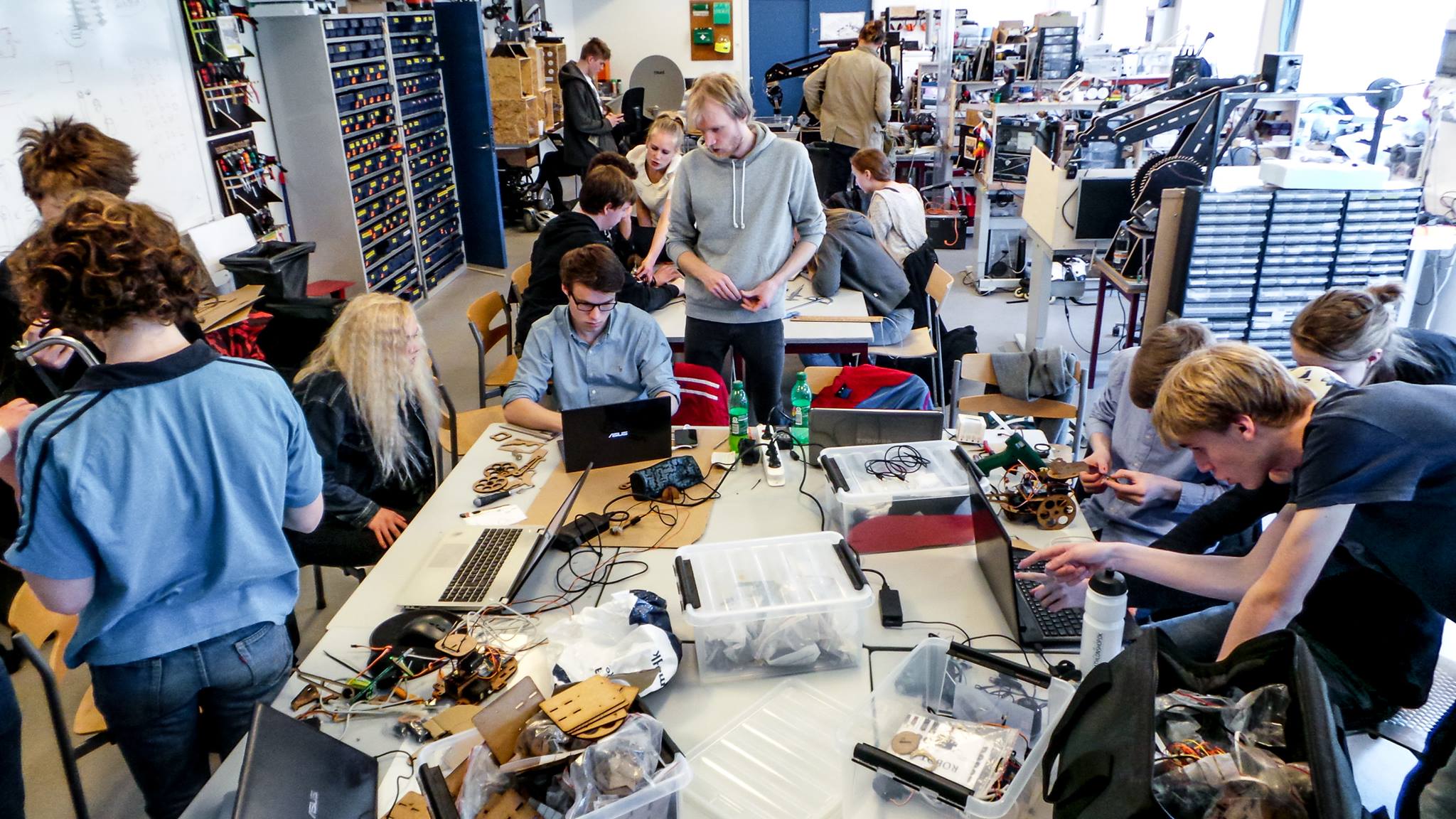 The first week is about you learning to program patterns on the toolkit. Your job is make one individual pattern. We will combine all your light patterns into a single program. This program will be used as the “firmware” for the workshop at the roskilde festival. Furthermore, you have to prepare the workshop. This means laser cutting signs, enclosures etc. and packing the gear that is necessary.
The first week is about you learning to program patterns on the toolkit. Your job is make one individual pattern. We will combine all your light patterns into a single program. This program will be used as the “firmware” for the workshop at the roskilde festival. Furthermore, you have to prepare the workshop. This means laser cutting signs, enclosures etc. and packing the gear that is necessary.
You will get an introduction to various Fablab disciplines like laser cutting and soldering electronics underway.
Week 2: Making your own prototype
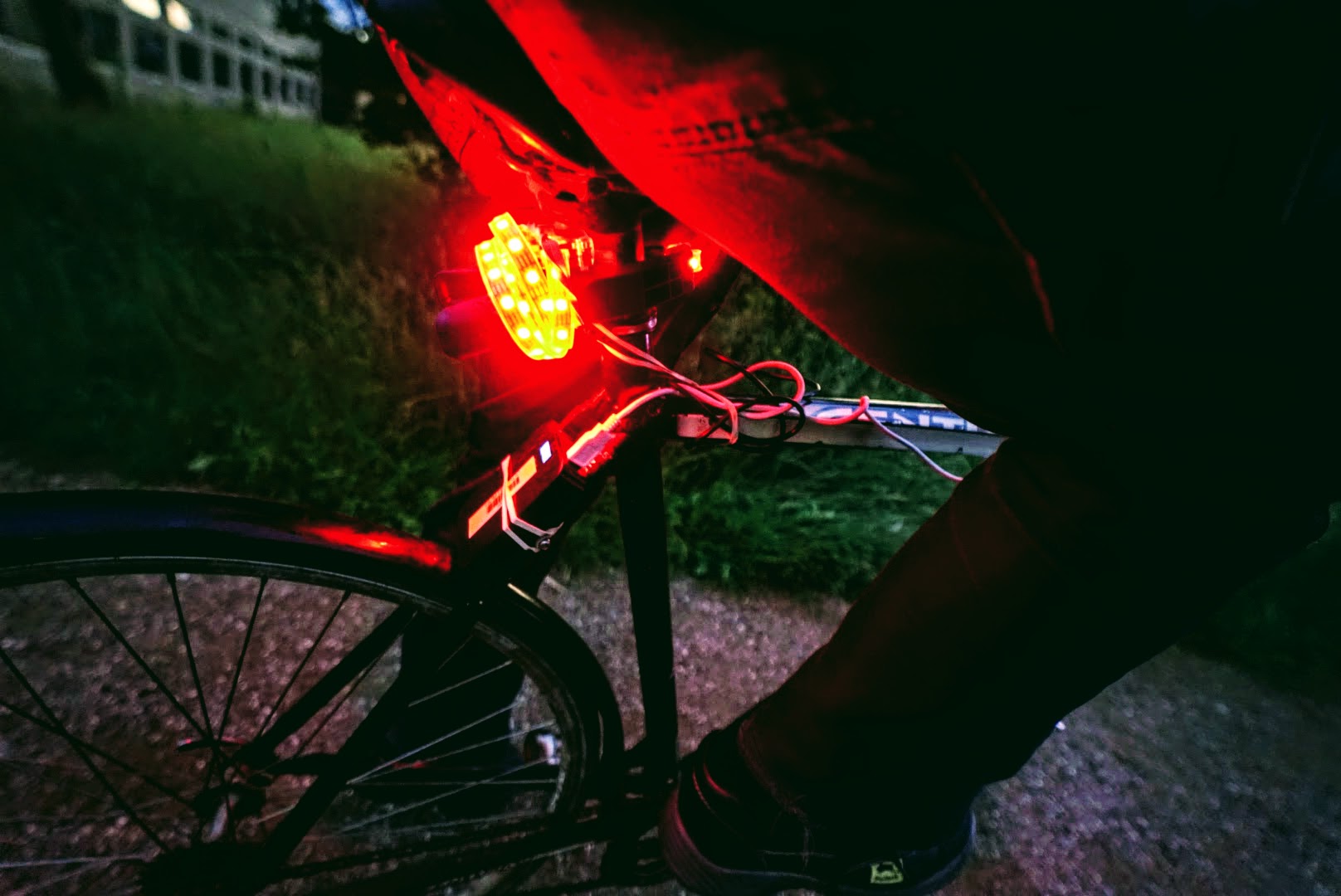
The final week will be about converting the knowledge you have about interactive light + the many use scenarios you got from the Roskilde Festival workshops. Based on your ideas we will form groups of 4-6 people. These groups will make a single example of how the microcontroller and the neopixels can be used to solve a real world problem in a Roskilde festival setting.


Week 3: Running the workshop at the festival, doing field testing, and exam
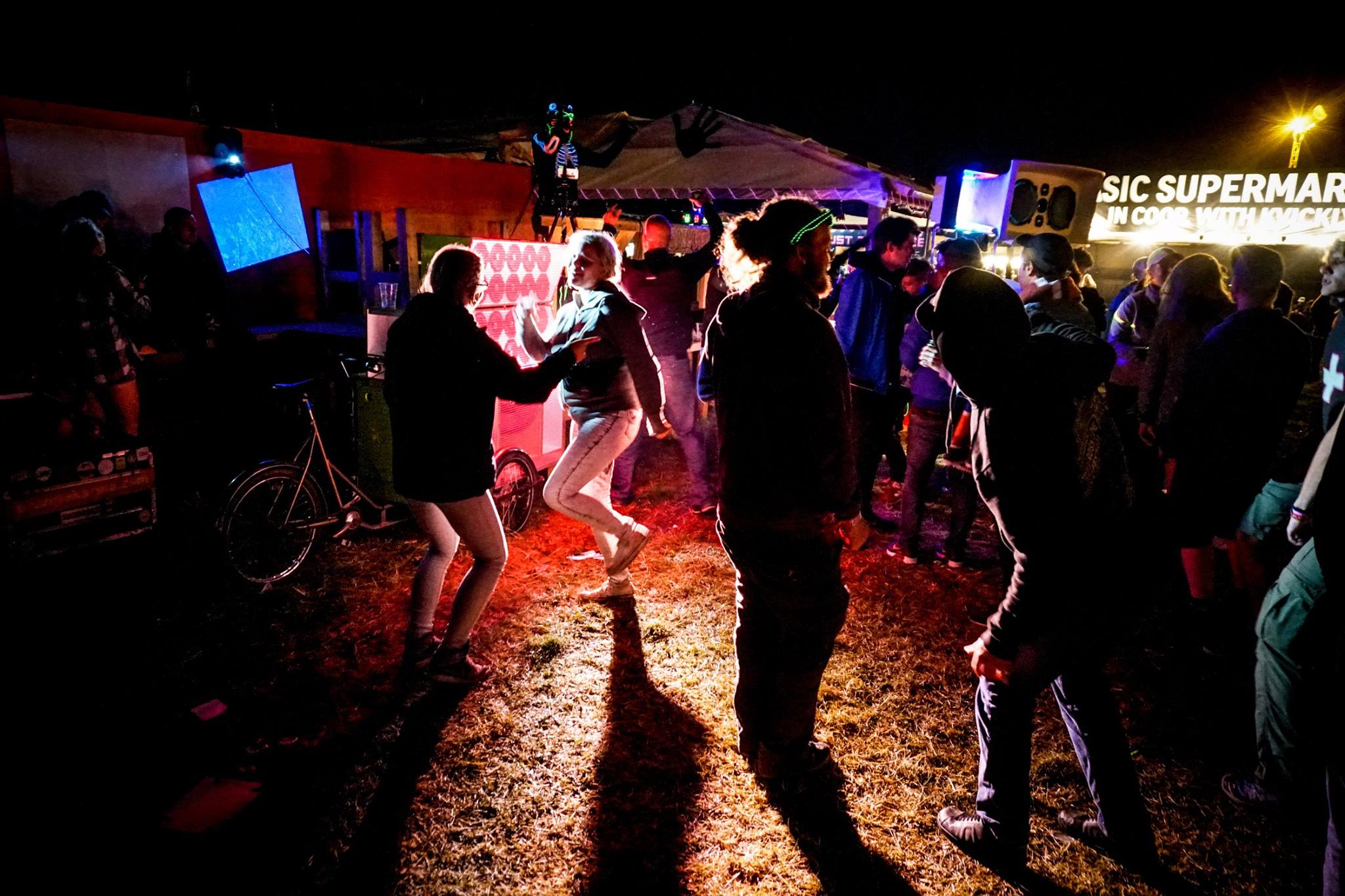
During the Roskilde Festival you will run the workshop for four days. The workshop will be about making light kits for Roskilde participants. They will have the different light patterns options that you programmed the first week. This is the time to engage with Roskilde participants on creative hacking with light on their clothes, tents etc. You will help them produce neopixel lights and brainstorm with them about possible use scenarios. It is important that you use this time as an inspirational field study to collect ideas about possible projects to use the third week for. Here it is important that you take pictures of inspirational objects and situations.
Note you will need to use 2 days at the festival for exam and exam preperation.
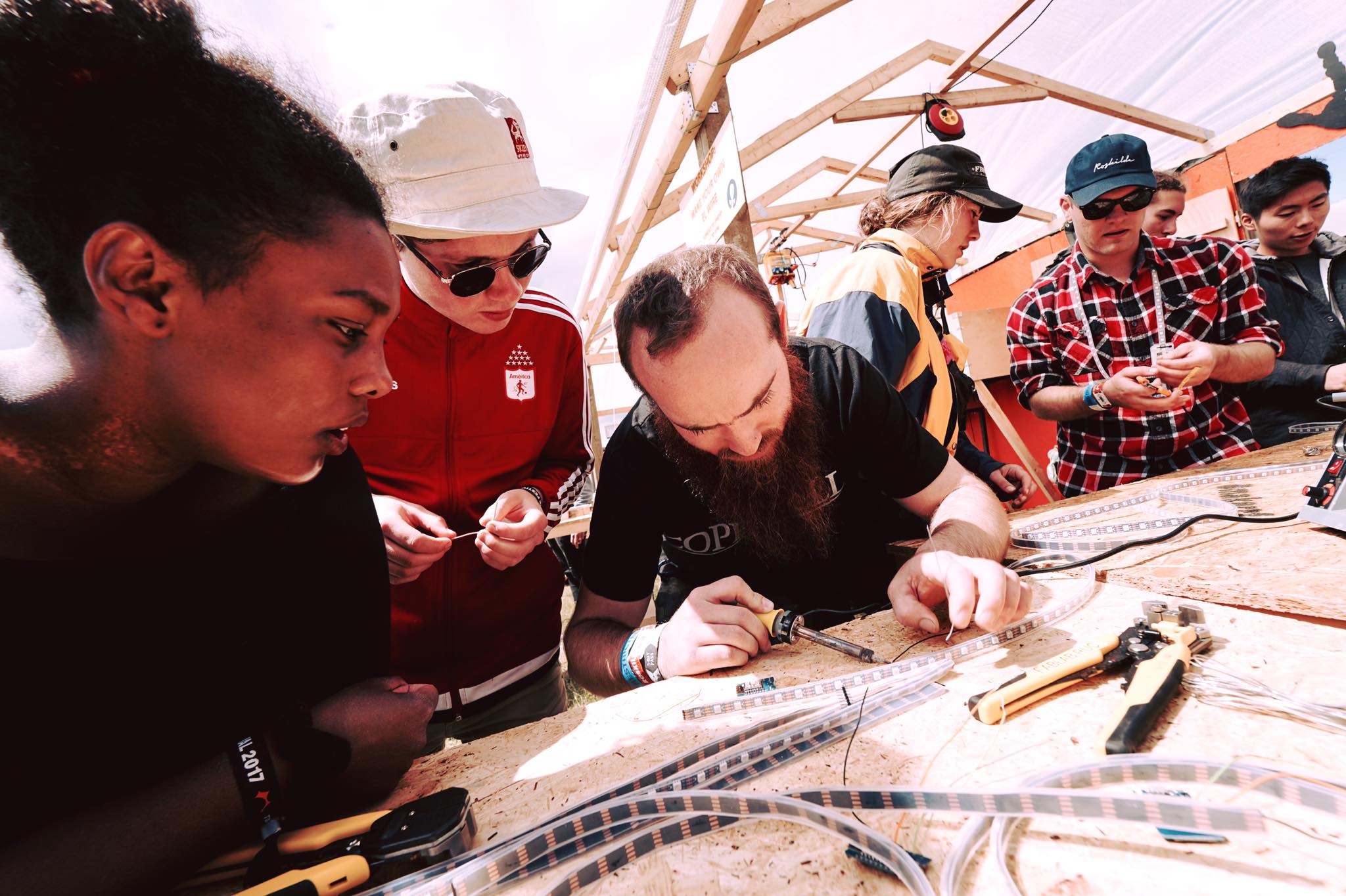
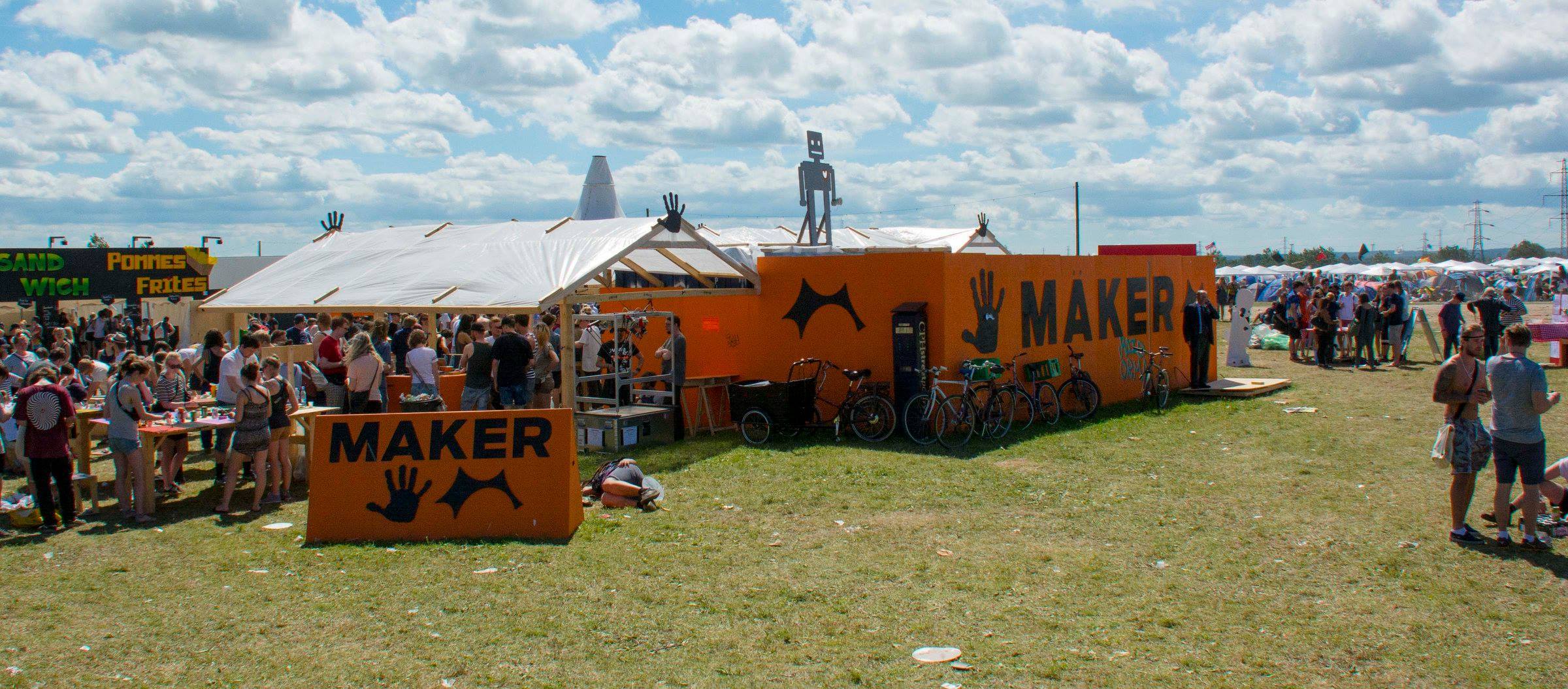
What the students said about the workshop
- Learnt more in these 3 weeks than last 4 years
- Excellent course
- Absolutely wonderful program, learned way too much in the space of three weeks (definitely a good thing!), will definitely be recommending the program to other students
- Amazing 3 weeks”
- Loved the program. Highly recommend.”
- Loved the program! Will do it again if the chance.
- It was a fantastic course, I'm so glad i enrolled in it
- A very special mention goes out the the ridiculously innovative FabLab team at RUC for being amazing in every sense- 'legendary' is the only word which seems to even remotely describe the level of creativity, talent and genius which is fostered and nurtured here.
Teachers
 Nicolas Padfield, Programming, Sensors, Rapid Prototyping
Nicolas Padfield, Programming, Sensors, Rapid Prototyping
Mads Høbye, Programming, Rapid Prototyping
Schack Lindemann, Computer Controlled Machines
Nikolaj “DZL” Møbius, Electronics, Sensors, Microcontroller Programming
Bo Thorning, Laser Cutting, Programming, Sensors
Assistance: Leonora Bryndum, Alberte Jeberg Kjær, Albert Møbius, Jason Knight, Alice Walsh
Formal
The course is formally based on “Interactive Digital Systems”, Computer Science, 5 ECTS points (Datalogi Fagmodulkursus 3, like http://kursus.ruc.dk/class/view/7383 (previous run, ignore dates)
Festival ticket
For international students: the festival ticket is included in the price.
For Danish students: we expect to be able to provide workers armbands, as we did last year - but we do not yet have a formal agreement with the festival - it is difficult to get an agreement this early. But we cannot promise anything. Worst case is you would have to pay for a ticket yourself. The collaboration with the Maker area at Roskilde Festival is a cooperation with two legal entities external to Roskilde University, so we cannot guarantee any specific outcomes. But it has gone well the last several years.
